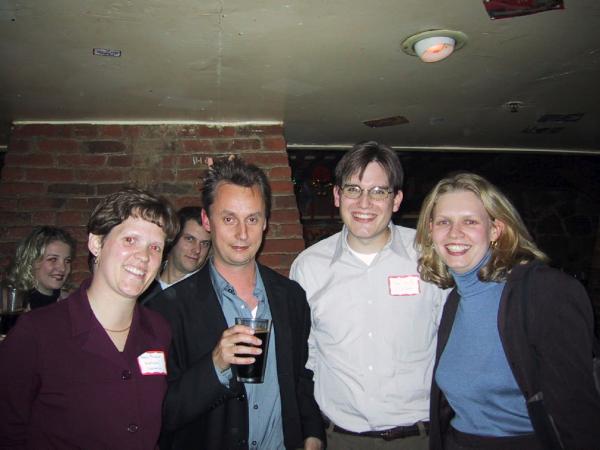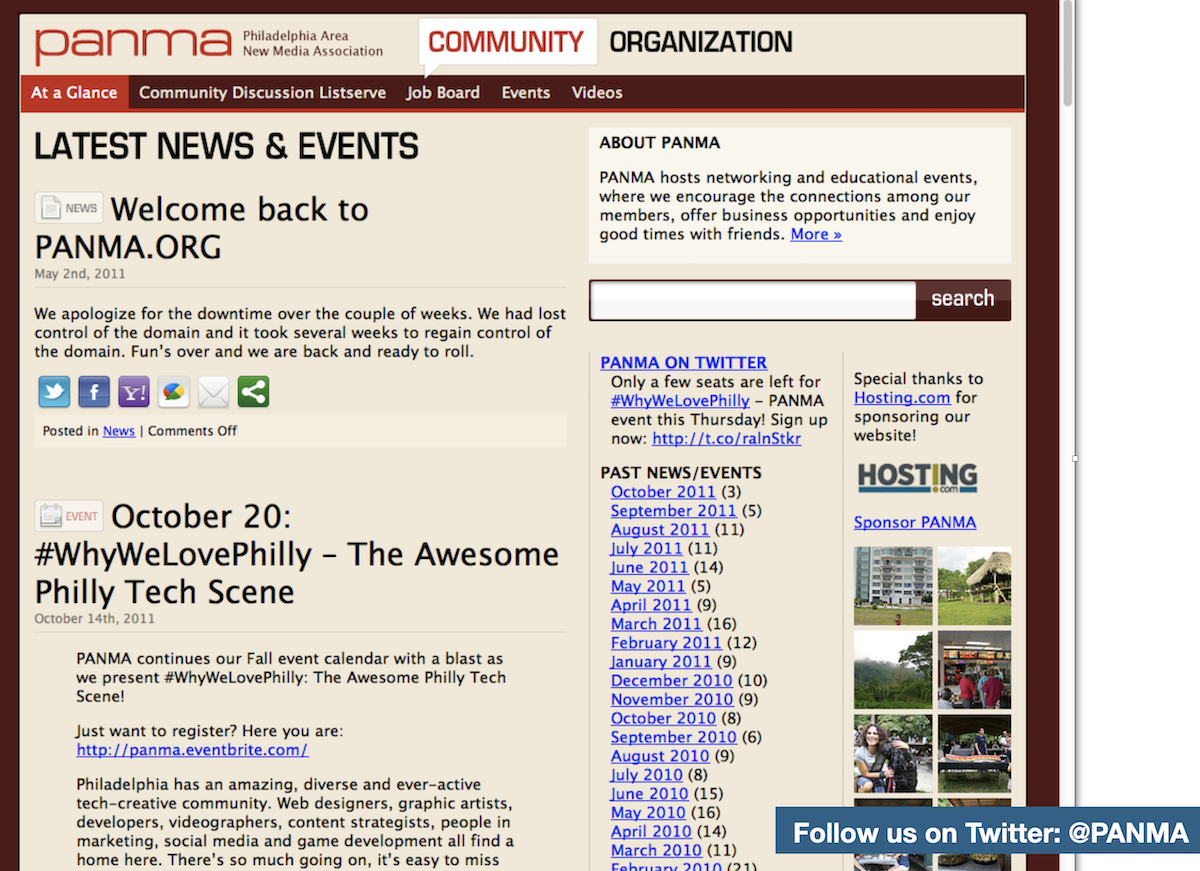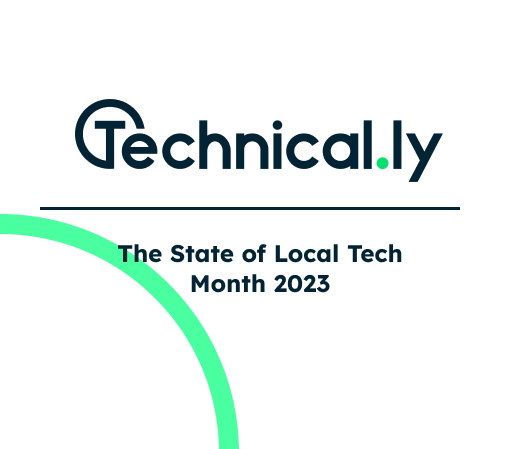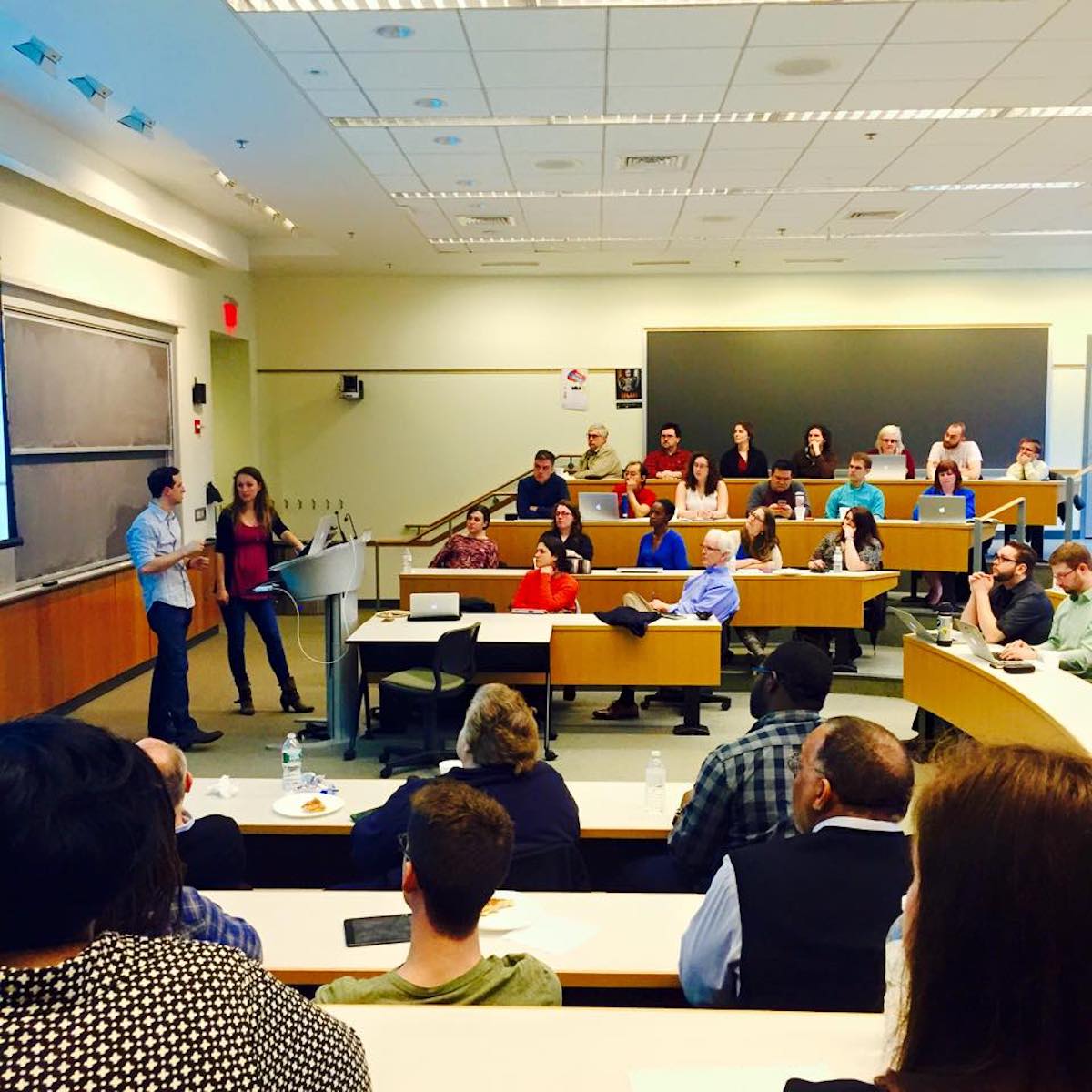Philly’s tech meetup scene has ebbed and flowed over the last few decades, both because of a pandemic and as the technological undercurrents of the city’s growing industries changed to meet modern needs.
But for longtime members of the scene, PANMA was a constant. The Philadelphia Area New Media Association was launched in the 1990s, intending to bring together anyone who was building new technologies or interested in doing so in the Greater Philly region.
It likely wasn’t Philly’s first tech meetup, Wharton Research Data Services’ Tim Allen told Technical.ly; there were computing groups in the 1970s that predate PANMA. But until its closure in early 2020, it probably was the longest lasting. That was true even back in 2013.
Evolution of a tech meetup
Former board member Reed Gustow said the group first started meeting as Cyber Suds in 1996, with a crew of pretty advanced technologists — as advanced as the time allowed, just a few years after the internet emerged, he noted. Folks gathered at a pub on Grape Street in Manayunk to talk “browser wars” — that is, Netscape Navigator versus Internet Explorer. Soon, the group got involved with the Eastern Technology Council, a business council in the tech space looking for a pipeline of skilled technologists to connect with growing companies.
“It was called F2F, face to face at bars, basically,” Gustow said. “And you, at the time, you couldn’t fight your way to get a drink.”

Photo of PANMA meetup circa 2000. (Courtesy of Nathan Gasser)
Gustow joined in 2000, and said when the dot com bubble burst in 2001, the group struggled a little bit in “finding our way.” But by 2005 and 2006, it had brought on a new board and focused meetups on wider tech professional development, networking and upskilling. Those looking to learn about the industry could bump elbows with some who had been in tech for more than a decade.
The group aimed to keep true to their motto: connecting the digital development community of Philly.
The group aimed to keep true to their motto: connecting the digital development community of Philly.
“Not just getting together to talk; we would have formal presentations on the browsers, on the hardware or the technology which was changing very fast at that time,” Gustow said. “We continued like that for essentially the next 15 years or something doing that kind of thing, trying to present content that was relevant to the tech creative community of Philadelphia, and to kind of give the idea that Philadelphia was a great place to work.”
Getting Allen on the board in 2006 was a big win, Gustow said. He’d been attending meetups since probably 1997, but through his work at Wharton, he got the group a formal space to meet with audio, visual equipment and the all-important pizza in 2008. At the time, Associate Dean of the Wharton School Deirdre Woods liked the potential of bringing Philly’s bright tech talent to the university, per the organizers.
The group met steadily for decades on a mostly monthly basis, taking some breaks in the summer when folks went on vacation, and hosting holiday parties instead of informational sessions in December. The board members aimed for programming so accessible that no matter which meetup you attended, you could “jump right in.”
“That was one thing I always loved about PANMA, there was zero judgment and it was, you know, we welcome the newcomers with open arms,” Allen said. “People who might have never touched technology before could try it. I think PANMA really embodied the best of equity and inclusion. There were no stupid questions. There was no sort of bro culture in it.”

PANMA’s website in 2011. (Courtesy image)
Nick Floro was involved with the group from 2008 to 2017, eventually serving as its president. He noted that the monthly meetups were made up of about 20% regulars and 80% new people, and credits the diversity of topics and following what folks wanted to talk about for its growth.
While some industries were gutted in the 2008 recession, tech — especially in Philly — held on. Its eds and meds industries have traditionally helped the economy whether the storm better. And as budgets were slashed and companies stopped sending employees to tech conferences, free events like PANMA’s monthly meetup saw a huge boom.
A fond farewell
For the next decade following the recession, PANMA chugged along, its former board members said. But about six or seven years ago, the organizers noticed a proliferation of more specialized meetups forming. Philly technologists could now find meetups for their specialty or language. So PANMA pivoted a bit toward the soft skills that progress a tech career. They covered tech interviews, confidence in your skills and navigating a career as a woman in tech, among other topics.
“We had events where it was jammed wall-to-wall attendance on the ‘imposter syndrome’ because a lot of people — not just in tech, but specifically in tech — felt that way,” Gustow said.
Like most other IRL meetup groups, PANMA halted its schedule when the pandemic hit in early 2020. Allen recalls the 2019 holiday party, not knowing it would be the last time the meetup group got together. Floro attributed much of the reason for its closure to the accessible information and upskilling that moved online in the pandemic, and the time it would now take folks like him who live in the suburbs to attend in-person events. But he feels confident that if they held a reunion they would “pack it in” with attendees. (A mini version of such a reunion occurred during the Super Meetup happy hour at this year’s Philly Tech Week 2023 present by Comcast’s Technical.ly Developers Conference.)
Floro attributed PANMA’s success over the years to the group’s ability to partner with other groups or organizations who were pioneering something in tech. He said they always were able to capture a good speaker or give people the opportunity to get out of their shell and join the tech scene.
But ultimately, the trio agreed that the group’s welcoming nature and its strive to be inclusive kept it running as long as it did. The group went through several phases over the years since its first gathering as the Cyber Suds, but those goals remained.
“I would say it was more accessible than others and we were always trying to evolve,” Gustow said. “And really, I that’s why PANMA lasted as long as it did. Because it did evolve to meet the needs of that community.”

This editorial article is a part of State of Local Tech Month of Technical.ly’s editorial calendar.
Before you go...
Please consider supporting Technical.ly to keep our independent journalism strong. Unlike most business-focused media outlets, we don’t have a paywall. Instead, we count on your personal and organizational support.
Join our growing Slack community
Join 5,000 tech professionals and entrepreneurs in our community Slack today!

Turnpike toll upgrades could shrink Pennsylvania’s broadband deserts

Trump revokes Biden’s AI order, but safety consortium won’t yet dissolve

How Philly cops can use the city's $800k for police drones to improve safety while avoiding unchecked surveillance



